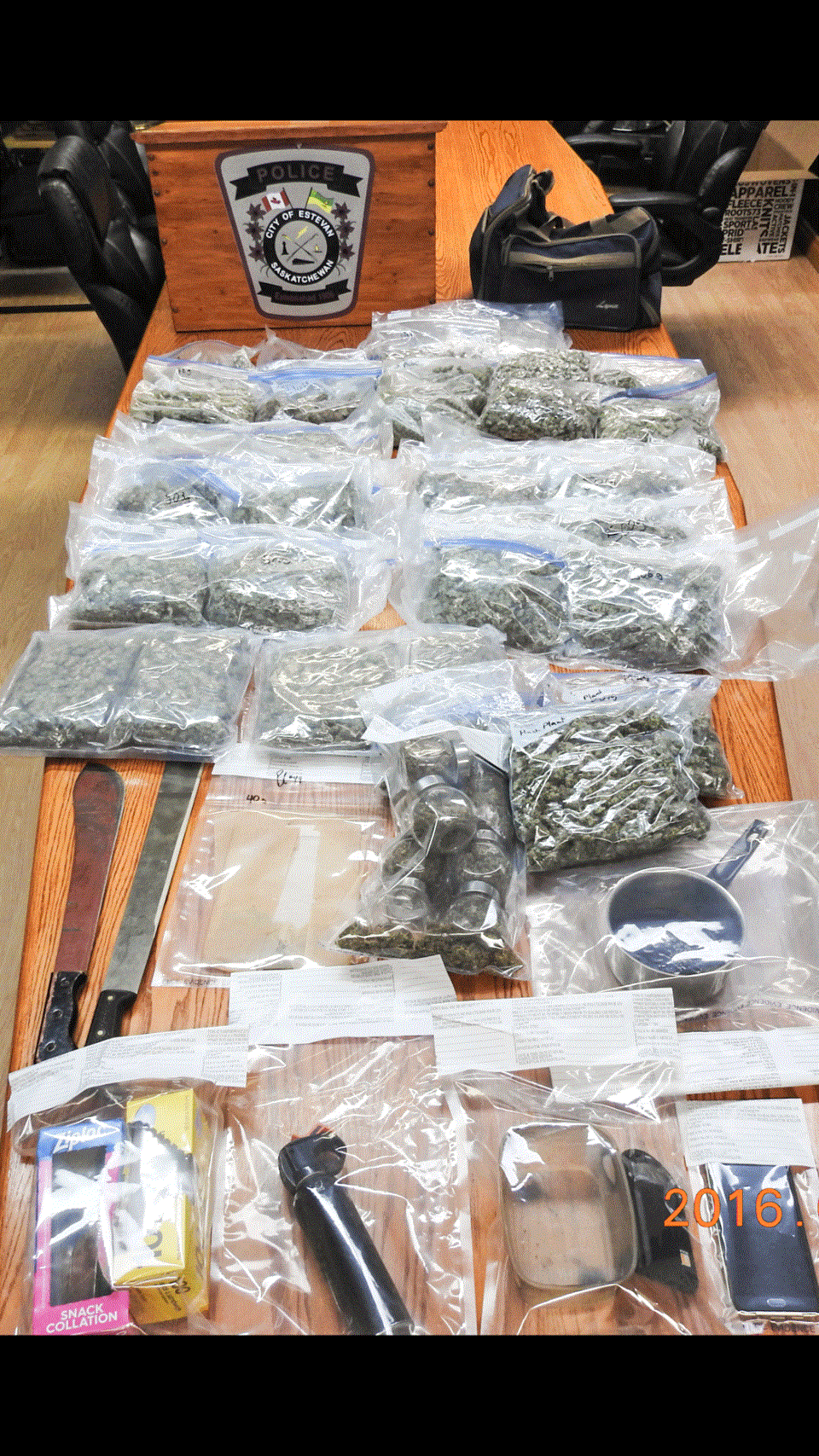One person was arrested and drugs were seized during a drug bust in Estevan on Feb. 10.
Members of the Estevan Police Service’s (EPS) Drug/Intelligence Unit, along with the Containment and Warrant Entry Team (CWET) and uniformed members, executed a search warrant at a residence in the 700-block of Fifth Street.
“At any given time, the Drug/Intelligence Unit has several investigations on the go,” said police Chief Paul Ladouceur. “As they gather intelligence and more information on drug activity in the city, they target certain individuals that they believe are involved in the distribution of drugs in the city.”
Upon entering the residence, police were confronted by a man who was brandishing a machete. He was subsequently arrested without incident.
“Drug trafficking has a long history of violence that follows closely with it,” said Ladouceur. “In this instance, it’s unknown exactly what the intent of the individual was … whether he believed it might have been someone else to rip him off, or if he knew it was police.”
A search of the property led to the seizure of approximately eight kilograms of marijuana and 40 grams of a marijuana derivative, known as shatter, along with materials used for sale and distribution. The drugs will be sent for analysis, tagged as evidence, held for the investigation and eventually destroyed.
The total street value of marijuana seized is approximately $82,000. No cash was seized during the drug bust, but Ladouceur noted the incident is under investigation.
“We’ve seen in the past where some drugs were seized, and then following some time, some cash was seized as well,” said Ladouceur.
Denis Hein, 56, of Estevan is charged with possession of marijuana for the purpose of trafficking, trafficking marijuana, possession of cannabis resin for the purpose of trafficking, trafficking cannabis resin, production of cannabis resin, assault with a weapon and possession of a weapon dangerous to the public.
He made his first court appearance on Feb. 11.
The EPS will continue to enforce laws related to marijuana, Ladouceur said, even though Prime Minister Justin Trudeau promised his government would legalize the drug. Saskatoon police Chief Clive Weighill, who is also the president of the Canadian Association of Chiefs of Police, has said police aren’t focused on people who have small amounts of the drug.
“A lot of people have a misconception that because of all the discussions politically around marijuana use, sale and distribution, that this drug is already legal,” said Ladouceur. “We have to keep in mind that this drug is not legal, unless people are using it for medicinal purposes, and have licences to do so.”
Local police will continue to treat it as an illegal drug until they are directed otherwise by the government. When legalization or decriminalization of marijuana does occur, Ladouceur noted there will be strict guidelines.
“Who knows what you’re getting when you buy drugs off the street right now, whether it be marijuana or shatter or morphine or anything like that,” said Ladouceur.
The police chief added that it’s not the police who determine what’s legal and illegal; their focus is on enforcement. They do have some discretion, and can give people warnings, but they can’t opt to not enforce a law.
“I’m sure there are many laws that different officers may disagree with,” said Ladouceur. “But they’re still required to enforce them.”
People are profiting from the sale of marijuana, he said, and in some cases they’re profiting from selling the drug to young people, even though they might not know the contents of the drug they’re selling.
Ladouceur also defended the presence of the CWET unit. He believes some might question the need for such a tactical unit, and might view it as a heavy-handed approach, but Ladouceur supports their existence and deployment.
“If you look, statistically, when a tactical unit is used, co-operation is much easier from the suspect, and generally the suspect will surrender to police without incident, because they know they don’t stand a chance,” said Ladouceur.
“My view is regardless of the public perception, we have to look at the public safety aspect of it, and if we’re doing this, and the way we’re doing it is creating greater safety to the public and greater safety to our members, then why wouldn’t we be doing it?”
The CWET unit has been deployed several times since it was created last year.




